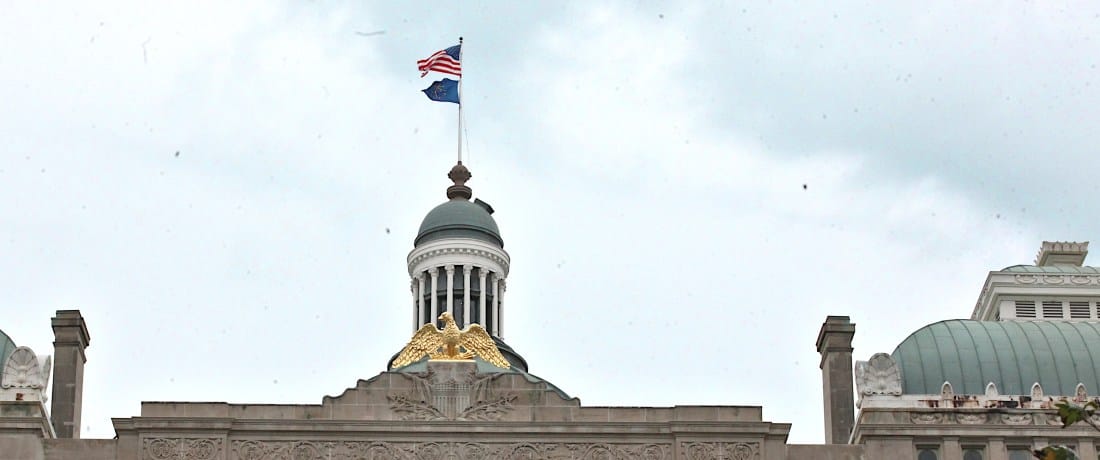Bloomington’s wait begins: State’s appeal of annexation ruling now fully briefed


Continuing its methodical path through the judicial system is an appeal by the governor to the Indiana Supreme Court. The state is seeking to overturn a lower court ruling made in April, which found that a 2017 law blocking Bloomington’s annexation process was unconstitutional on two separate grounds.
On Friday, the State of Indiana filed its reply to Bloomington’s response to the state’s initial papers. With that, according to the state’s online document system, the case in front of the state’s highest court is now “fully briefed.”
Neither Bloomington nor the State of Indiana has filed a motion to have oral arguments in front of the five justices of the ISC. According to the Rules of Appellate Procedure, the ISC could decide to have oral arguments, even without a motion from one of the parties.
In the state’s most recent brief, the state reviews the same three basic points of the appeal: Bloomington’s lawsuit is against the wrong person (Gov. Eric Holcomb); the law enacted by the state legislature is permissible special legislation under the state’s constitution, because Bloomington has unique characteristics; and the annexation law was appropriately a part of the biennial budget bill, because there’s a reasonable basis for putting it there.
The state’s contention that Holcomb can’t be the defendant in such a case was decided by the Court of Appeals during the lower court proceedings—in Bloomington’s favor. But the state is appealing on all possible grounds. If the ISC were to decide the state is right about Holcomb being an unsuitable defendant, the other two questions would be moot.
So the state’s most recent filing devotes seven pages to arguments that Holcomb was the wrong person to sue. According to the state’s analysis, the governor is the wrong person to sue because the governor does not enforce the state’s annexation statute, and the state contends that only if the governor were responsible for enforcing the annexation statute would he be an appropriate defendant. Bloomington should have instead sued landowners who would have been annexed, the state says. From the reply brief: “Indeed, Bloomington could have named a defendant class of all landowners who would remonstrate.”
On the question of special legislation, there’s no dispute that the 2017 annexation law applies uniquely to Bloomington. The legal question is whether the special legislation is permissible, based on previous cases. Central to the arguments is the 1971 case that allowed the creation of Unigov for Marion County (Dortch v. Lugar). The state contends that: “Like Unigov, the Annexation Law is about maintaining the current structure of government in Bloomington and Monroe County, not about annexation process.”
The third point of the appeal deals with Bloomington’s claim, supported by the circuit court, that the 2017 annexation violated of the constitutional requirement that legislation be confined to a single subject. The state contends that incorporating the law suspending Bloomington’s annexation efforts into the biennial budget bill is consistent with the single-subject rule, because of previous cases that set the following standard: There just has to be “a reasonable basis for grouping together in one act various matters of the same nature, and the public cannot be deceived reasonably thereby.”
The “reasonable basis” put forward by the state for grouping the annexation law into the biennial budget bill is that the bill deals with “matters affecting specific localities reasonably related to local taxation, appropriations, disbursements, and state and local operations.”
The state’s reply also cites legislative rules, for both the House and the Senate, that are designed to prevent the amendment of legislation with items that are not “germane” to the bill to be amended. Because the annexation law was added as an amendment to the biennial budget bill, and passed muster as “germane,” it would amount to judicial meddling in the legislature’s internal affairs for the ISC to rule in favor of Bloomington, according to the state.
Court filings for the appeal of Bloomington’s annexation case can be downloaded at mycase.in.gov, using the case number 19S-PL-00304.




Comments ()